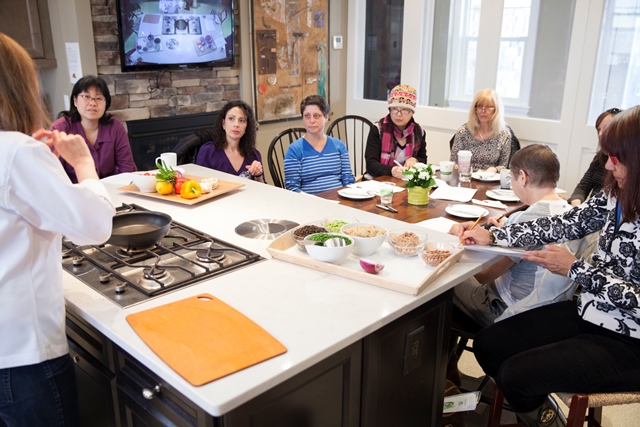When someone is diagnosed with cancer it not only affects the individual but also their loved ones around them. At Wellspring Cancer Support Foundation we understand the overwhelming feelings of fear, anxiety, pain, financial stress, isolation and guilt that come with a cancer diagnosis. Through one-to-one peer support, group support activities, learned coping skills, restorative programs and much, much more, Wellspring has helped thousands of people take an active role in controlling their cancer experience to improve their quality of life.
At Wellspring, the focus is on the person, not the disease. It is a warm, safe community that welcomes anyone living with cancer, at any stage of their cancer journey, as well as, those who care for them. All 40+ programs offered at Wellspring are evidenced-based, professionally-led and offered free of charge. Wellspring understands not only the individual needs of the person living with cancer but also the specific needs of the caregiver.
Wellspring offers a variety of programs that allow the person living with cancer and their caregiver to attend separately or together, for example, The Healing Journey, Drumming and Nourish programs.


The Wellspring Nourish program provides a variety of sessions on cancer and nutrition using the latest research to teach the fundamentals of good nutritional practices. Many Nourish programs include cooking demonstrations, food sampling and take home recipes.
Becoming a Wellspring member is easy. Simply drop into one of the four Wellspring GTA centres or fill out an online membership form at http://www.wellspring.ca/. When you visit Wellspring for the first time you will meet with a Peer Support Volunteer, someone who is a cancer survivor or has been a caregiver to someone with cancer. Peer Support Volunteers are specifically trained to provide emotional and coping support to people living with cancer and their caregivers. Meeting with a Peer Support Volunteer provides an opportunity for members to share their story, express concerns and learn about Wellspring in private. It also provides a time to help members select programming that is appropriate for their current needs, interests and time.
Wellspring has four centres across the GTA including Wellspring Downtown Toronto (4 Charles Street. East., 4th floor), Westerkirk House at Sunnybrook (105 Wellness Way), Birmingham Gilgan House in Oakville (2545 Sixth Line) and Wellspring Chinguacousy in Brampton (5 Inspiration Way). Please visit http://www.wellspring.ca/ for more information.




